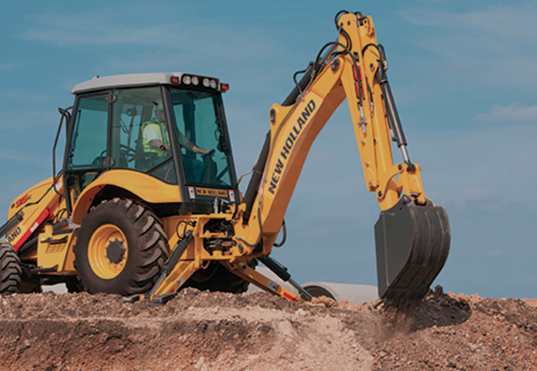
The Top Questions Contractors Ask About Hoisting License Renewal
Hoisting equipment is critical to many construction projects, and for safety and legal compliance, contractors need a valid hoisting license. But keeping that license current can be confusing. From renewal deadlines to continuing education requirements, contractors often have questions about the process. This guide addresses the most common questions contractors have about hoisting license renewal and provides clear answers to keep your operations safe and compliant.
1. When Do I Need to Renew My Hoisting License?
Massachusetts Hoisting licenses typically expire every two years on the licensees birthday. It’s essential to know your license’s expiration date to avoid fines, project delays, or potential liability issues. M.E.P. Con. Ed. sends our customers emailed renewal reminder notices 60 days prior to the due date. The MA Office of Public Safety and Inspections (OPSI) will send a renew form to the email address and address on file 60 days before it expires.
If you need to request a duplicate renewal, please download the attached Duplicate-renewal-form
2. What Are the Requirements for Renewal?
To renew a Hoisting Engineer License you will need:
- A copy of a valid driver’s license, driver’s license learner’s permit, or Massachusetts ID from the Registry of Motor Vehicles (RMV)
- A copy of a DOT Medical Certificate, Massachusetts Intrastate Medical Waiver, or ANSI/ASME B30.5 Medial Qualifications Form. For more information, view Medical Requirements for Hoisting Engineer License.
- Continuing Education Certifications for each restriction renewed. For more information, view Education Requirements for Hoisting Engineer License.
- Either authorization from the Massachusetts RMV to share your driver’s license photo with the Office of Public Safety and Inspections (OPSI) or a 2-inch by 2-inch photo that meets these guidelines.
Pro Tip: M.E.P. Con. Ed. stores all your continuing education certificates of completions within your account for 10 years. You can always download or print your certificate from within your M.E.P. Con. Ed. account.
3. Hoisting License Renewals
Can I Renew My License Online?
Yes, you can renew online using the Office of Public Safety and Inspections (OPSI) mylicenseone portal.
If you don’t have an account, you must create one.
- Log in and Select your license under “All Existing Licenses Held”
- If you don’t see your license, select “Don’t see your license? Click here to search for it” and enter your License Number and Registration Code, both can be found on your renewal form
- If you don’t have your Registration Code, you can email OPSI-info@mass.gov with Request for Registration Code in the subject line. Include your license number and phone number.
For more information visit: https://www.mass.gov/how-to/renew-your-hoisting-engineer-license
Can I Renew My License By Mail?
Yes, send completed documentation and a check or money order payable to the “Commonwealth of Massachusetts” to:
P.O. Box 414376
Boston, MA 02241-4376
Can I Renew My License In-Person?
Yes, hoisting licenses can also be renewed in person at:
Division of Occupational Licensure (DOL)
Commonwealth of Massachusetts
Office of Public Safety and Inspections
One Federal Street, Suite 600
Boston, MA 02110-2012
4. How Much Does Renewal Cost?
There is a nonrefundable processing fee of $60. Payment can be made online. If you sent an application by mail, payment must be enclosed in the form of a check or money order made out to the “Commonwealth of Massachusetts”. The charge of $60 is a flat fee and not dependent on the number of hoisting license restrictions renewed per individual.
5. Can I Change My Name/Address on Hoisting Engineer License?
Name and address change requests can be filed in OPSI’s licensing portal. Once logged in, click the three dots in the action column and select “Change of Address”.
6. What Happens If My License Expires?
Operating hoisting equipment with an expired license can lead to serious consequences:
- Fines or penalties from local authorities.
- Project delays, as inspections may halt work.
- Insurance complications, since claims may be denied if equipment is operated without a valid license.
If your license has expired, Massachusetts offers a 1 year grace period for renewal.
7. Is Continuing Education Mandatory?
Yes, continuing education is the key requirement for hoisting license renewal. The goal is to ensure operators remain up-to-date on:
- Safety regulations and best practices
- New equipment technologies
- Local and federal compliance changes
8. What are the Hoisting License Restriction Classifications?
Class 1: Hoisting
- 1A: All hoisting equipment (except electric and air powered) including clutch machines, derricks, guy derricks, stiff legs, Chicago booms, gin poles, lattice booms, and equipment described by 1B.
- 1B: Equipment with telescoping booms with or without wire ropes, and equipment described by 1C.
- 1C: Equipment hydraulic telescoping booms without wire ropes and equipment described by 1D.
- 1D: General industrial warehouse Fork Lift equipment primarily used in indoor facilities
Class 2: Excavating
- 2A: Crawler and rubber-tired excavators, backhoes and loaders, and equipment described by 2B
- 2B: Backhoes and front-end loaders, and equipment described by 2C
- 2C: Front-end loaders and equipment described by 2D
- 2D: Compact Hoisting Machinery with a gross vehicle weight not exceeding 10,000 pounds, excluding Class 1, Class 3, and Class 4 Hoisting Machinery.
Class 3: Electric and pneumatic
-
3A: Electric and Pneumatic hoisting equipment.
Class 4: Specialty
- 4B: Drill Rigs
- 4C: Pipeline Side booms
- 4D: Concrete Pumps
- 4E: Catch Basin Cleaners
- 4F: Sign-Hangers
- 4G: Specialty Side Boom Mowers
9. Where Can I Find More Information?
Have questions? Let’s chat! Contact us here or check out our courses.